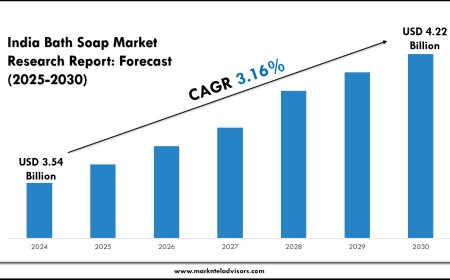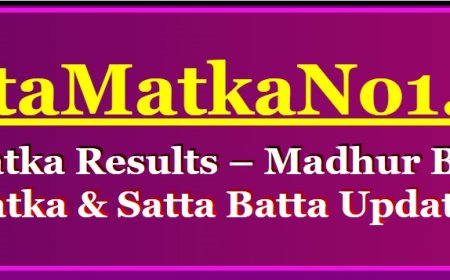Navigating India’s Startup Ecosystem with Data-Driven Strategies
Learn how Compliance Data and MCA data, Master Data helps Indian businesses like Haldiram’s, P&G India, and HUL stay compliant with regulatory requirements.

Simplifying Regulatory Compliance for Indian Businesses
Compliance with Ministry of Corporate Affairs (MCA) regulations is a cornerstone for Indian businesses aiming to avoid penalties, build trust, and operate seamlessly in a dynamic market. For startups and established enterprises alike, leveraging data-driven tools such as Compliance Data, MCA Master Data, Company Registration Details, and Corporate Identification Number (CIN) is essential. Platforms like MCA Master Data streamline the process, offering actionable insights to ensure adherence to regulatory requirements. This guide equips compliance professionals with strategies to harness MCA data effectively, using real-world examples from leading companies like Haldirams, Procter & Gamble (P&G) India, and Hindustan Unilever Limited (HUL).
Understanding MCA Compliance
The MCA oversees the regulatory framework for companies registered in India, ensuring transparency, accountability, and ethical practices. MCA Master Data serves as a comprehensive repository, housing critical information such as Compliance Data, Directors Identification Number (DIN), Company Financials, and CIN. The CIN, a unique 21-digit alphanumeric code, is assigned to every registered company, enabling tracking of registration and compliance status. Corporate Governance, another pillar of MCA compliance, mandates ethical leadership and operational transparency.
For instance, Haldirams (CIN: U15400HR2022PTC108327), a leading name in Indias food and snacks industry, relies on MCA data to maintain compliance. Similarly, P&G India (CIN: U24239MH1964PLC012971), a global consumer goods giant, and Hindustan Unilever Limited (HUL) (CIN: L15140MH1933PLC002030), a powerhouse in FMCG, use MCA insights to align with regulatory standards. These companies demonstrate how MCA data supports compliance across diverse sectors.
MCA Master Data provides a snapshot of a companys lifecycle, from incorporation to financial reporting. Compliance professionals can access details like annual returns, director appointments, and financial statements, ensuring adherence to legal obligations. By understanding MCAs framework, businesses can proactively manage compliance risks and foster trust with stakeholders.
Benefits for Compliance Professionals
MCA data offers compliance professionals a robust toolkit to navigate regulatory complexities. Below are key benefits, illustrated with examples from Haldirams, P&G India, and HUL:
1. Filing Tracking
Compliance Data enables real-time monitoring of statutory filings, such as annual returns and financial statements. For Haldirams, tracking filings via MCA Master Data ensures timely submissions, avoiding penalties. Regular updates on filing status help compliance teams stay ahead of deadlines, maintaining a clean regulatory record.
2. Director Verification
The Directors DIN No. is a critical identifier for verifying leadership compliance. For instance, checking the DIN of Sanjiv Mehta (DIN: 06699923), former CEO of HUL, confirms adherence to governance norms. Similarly, verifying directors at P&G India ensures alignment with MCA requirements, safeguarding leadership integrity.
3. Financial Oversight
Company Financials provide insights into a companys fiscal health and regulatory adherence. Reviewing HULs financials on MCA Master Data reveals consistent compliance with reporting standards. For P&G India, financial transparency strengthens stakeholder trust, while Haldirams uses financial data to align with tax and audit requirements.
4. Risk Management
MCA data helps identify governance risks, such as conflicts of interest or non-compliant directors. For example, verifying directors like Manohar Lal Agarwal (DIN: 00290780) at Haldirams ensures compliance with MCA norms. Cross-referencing director details across public and private companies mitigates potential risks, enhancing corporate governance.
These benefits empower compliance professionals to streamline processes, reduce errors, and build a culture of accountability within their organizations.
How to Use MCA Data
Leveraging MCA data requires a systematic approach. Below is a step-by-step guide for compliance professionals to access and utilize MCA Master Data effectively:
1. Access Platforms
Start by visiting the official MCA portal (www.mca.gov.in) or third-party platforms like MCA Master Data. These platforms aggregate Compliance Data, Company Registration Details, and CIN information, offering user-friendly interfaces for quick searches.
2. Search CIN
Use the CIN to retrieve company-specific data. For example, entering Haldirams CIN (U15400HR2022PTC108327) provides access to its filings, financials, and director details. Similarly, searching P&G Indias CIN (U24239MH1964PLC012971) or HULs CIN (L15140MH1933PLC002030) yields comprehensive compliance insights.
3. Verify Directors
Review director profiles using their DIN. For instance, checking Chittranjan Dua DIN (00036080) at P&G's confirms his compliance status. Cross-verifying directors at Haldirams and HUL's India ensures no discrepancies in leadership records, reducing governance risks.
4. Monitor Compliance
Use Compliance Data to track filing deadlines, audit requirements, and regulatory updates. For private companies like Haldirams, the private companies page on MCA Master Data provides tailored insights. For public companies like HUL, the public companies page offers detailed compliance reports.
By following these steps, compliance professionals can harness MCA data to ensure seamless adherence to regulatory obligations.
Real-World Impact
MCA data has transformative potential for compliance management. Below are real-world scenarios illustrating its impact:
Case 1: Haldirams Compliance Officer
A compliance officer at Haldirams uses MCA Master Data to monitor annual filings. By tracking Compliance Data, the officer ensures timely submission of financial statements, avoiding penalties. Regular audits of director details, such as Manohar Lal Agarwals DIN (00290780), confirm governance compliance, strengthening the companys regulatory standing.
Case 2: P&G Indias Financial Oversight
P&G Indias compliance team reviews Company Financials on MCA Master Data to validate adherence to reporting standards. By cross-checking financial data with audit requirements, the team ensures transparency, reinforcing stakeholder confidence in the companys operations.
Case 3: HULs Risk Management
HULs compliance professionals use MCA data to verify director appointments. Checking Devopam Narendra Bajpai DIN (00050516) and other directors profiles mitigates governance risks. Monitoring Compliance Data on the public companies page ensures HUL stays ahead of regulatory changes, maintaining its reputation as a compliant FMCG leader.
These examples highlight how MCA data streamlines compliance processes, reduces operational risks, and enhances organizational efficiency.
Best Practices for MCA Compliance
To maximize the value of MCA data, compliance professionals should adopt the following best practices:
1. Automate Tracking
Leverage MCA tools to set up alerts for filing deadlines and regulatory updates. Automation reduces manual errors and ensures timely submissions, as seen with Haldirams compliance processes.
2. Conduct Regular Audits
Schedule periodic audits of Compliance Data to identify discrepancies in filings, financials, or director details. Regular reviews help P&G India maintain a robust compliance framework.
3. Train Teams
Educate compliance teams on MCA requirements and data usage. Training programs at HUL ensure staff are well-versed in navigating MCA Master Data, fostering a culture of regulatory awareness.
4. Consult Experts
For complex compliance issues, engage legal or financial advisors. Expert guidance helps Haldirams navigate intricate MCA regulations, ensuring adherence to evolving standards.
5. Integrate Data Analytics
Use data analytics to derive insights from MCA Master Data. For instance, analyzing HULs financial trends can inform strategic compliance decisions, enhancing long-term regulatory success.
By implementing these practices, businesses can build a proactive compliance strategy that aligns with MCA requirements and supports sustainable growth.
Challenges in MCA Compliance
While MCA data offers significant advantages, compliance professionals may face challenges:
-
Data Overload: The volume of MCA Master Data can be overwhelming. Prioritizing relevant metrics, such as CIN and Compliance Data, streamlines analysis.
-
Regulatory Updates: Frequent changes in MCA regulations require constant vigilance. Subscribing to MCA alerts keeps professionals informed.
-
Resource Constraints: Small businesses may lack dedicated compliance teams. Third-party platforms like MCA Master Data bridge this gap by simplifying data access.
-
Technical Barriers: Navigating MCA portals may require technical expertise. Training or outsourcing can address this issue.
By anticipating these challenges, compliance professionals can develop strategies to overcome them, ensuring effective use of MCA data.
Future of MCA Compliance
The MCA is increasingly adopting digital solutions to enhance compliance efficiency. Initiatives like e-filing, integrated portals, and AI-driven analytics are transforming the regulatory landscape. For instance, predictive tools could soon alert companies like HUL to potential compliance risks based on historical data. As Indias startup ecosystem grows, MCA Master Data will play a pivotal role in supporting scalable, data-driven compliance strategies.
Emerging technologies, such as blockchain for secure data storage and machine learning for anomaly detection, may further streamline MCA compliance. Companies like Haldirams, P&G India, and HUL are well-positioned to adopt these innovations, leveraging their existing MCA data practices to stay ahead.
Conclusion
Compliance Data, MCA Master Data, and Company Registration Details are vital for navigating Indias regulatory landscape. Companies like Haldirams, P&G India, and Hindustan Unilever Limited demonstrate the power of MCA data in ensuring regulatory adherence. By accessing platforms like MCA Master Data, verifying director details, and monitoring compliance metrics, businesses can avoid penalties, mitigate risks, and build stakeholder trust. Explore the public companies page and private companies page on MCA portals to unlock compliance success and thrive in Indias competitive startup ecosystem.


























